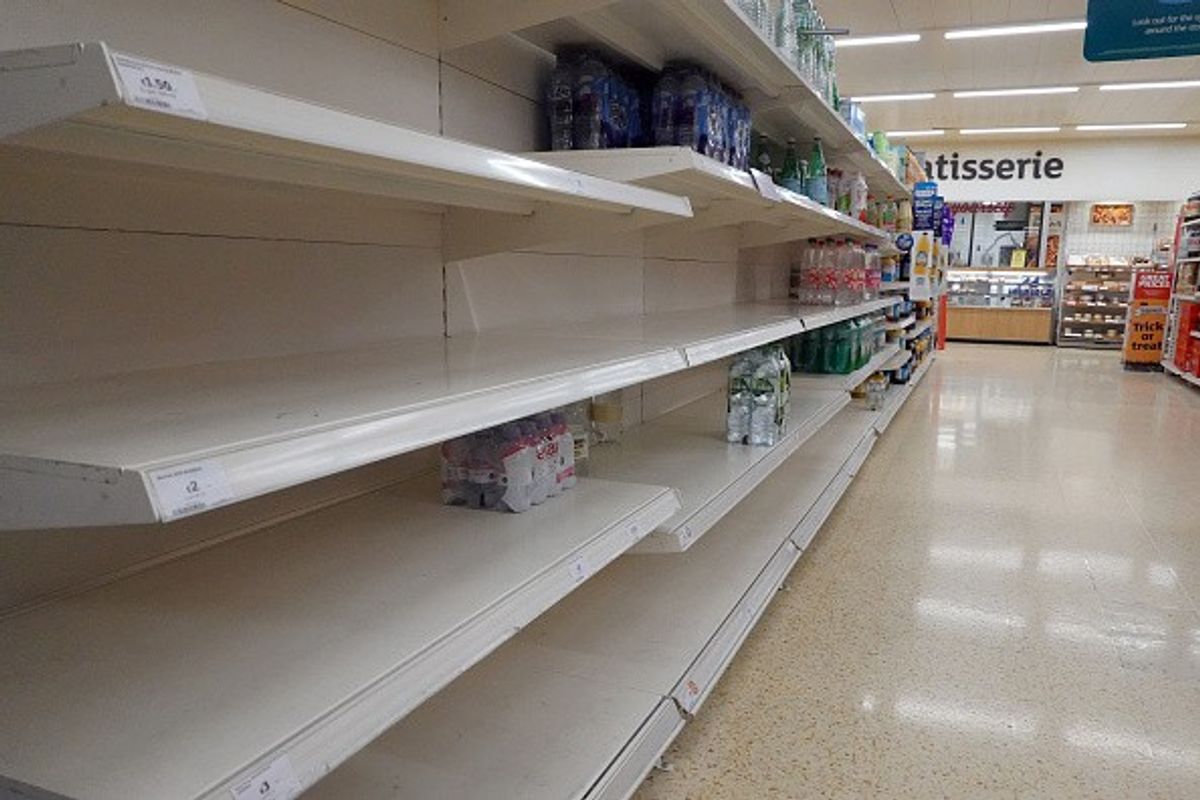Almost nine million people, representing one in six adults in Great Britain, have reported that they have not been able to buy essential food items in the past two weeks because of unavailability, an official research suggested on Friday (8).
According to an Office for National Statistics (ONS) survey, 17 per cent of adults could not buy some of the grocery products they needed between Sept 22 and Oct 3, reflecting the widespread impact of supply chain disruption and labour shortages.
Nearly a quarter of respondents (23 per cent) told the ONS they had not been able to purchase other essential non-food items.
About 15 per cent reported they had not been able to buy fuel for their vehicle during the fortnight, claimed ONS. There have been reports of forecourts running dry as motorists queued for long periods to fill up their cars.
The grocery shortage seems to have hit in the north-east and east Midlands regions, where a fifth of adults (21 per cent) told the ONS they had not been able to buy the items they needed.
Almost two-thirds of consumers surveyed (61 per cent) reported noticing some differences in shops compared with usual, which included seeing less variety on shelves than they would expect, or not being able to find a replacement for out-of-stock items.
Supply crisis is also now affecting availability of medicines or prescriptions, with almost a quarter (23 per cent) of adults reporting differences compared with normal, including people having to wait longer to receive their prescription items, ONS said.
Meanwhile, UK’s petrol retailers have called for an independent inquiry into the fuel crisis to ensure it does not happen again, saying the shortages are not easing quickly enough.
The Petrol Retailers Association, which represents independent forecourts, said 12 per cent of filling stations in London and the south-east were still dry and 17 per cent had just one grade of fuel. It said 71 per cent of forecourts in the region had both grades, compared with 90 per cent elsewhere.


